
• A professor’s words helped change the trajectory of Robert Jungmann’s life.
• Student government provided Yazmin Aguilar confidence to help others.
• A better work-life balance attracted Delano Palmer to CWU.
These three, along with countless others who call themselves Wildcats, are proof that the Central experience is something both tangible and special. What CWU provided for each, in terms of an education, a college experience, or a welcoming work environment, helped shape their present career paths.
For example, Robert Jungmann (BA Mass Communications, ’96) credits one of his CWU professors, Morris Uebelacker (now an emeritus professor of geography), for inspiring him to launch Jungmaven, a company that manufactures a variety of products, ranging from shirts and sheets to wallets and sandals, using industrial hemp.
“One of the reasons I mention Central Washington University (in my online profiles) is that it was a pivotal point for me—college was amazing,” he said. “I just remember how nice everyone was on the faculty, with professors giving out their home phone numbers if you needed anything. It was so awesome.
“It’s where I met Morris Uebelacker; he was teaching a course on rivers and environment,” he continued. “That’s where I learned about industrial hemp and how we could start not cutting down old growth forests and could use industrial hemp for many of the uses we were cutting down all the trees for.”
Jungmann, a native of Evanston, Illinois, who grew up in Phoenix and the Seattle area, said it was while seeing the environmental impacts of clear-cut timber practices in the West in the 1980s and ‘90s that he first became interested in saving forests and developing renewable products.
“Being a kid from Phoenix, where we really didn’t have very many trees, and then coming here [on camping trips with his family] and watching the state get clear-cut during the ‘80s and ‘90s … that really resonated with me,” he said. “That was my ‘ah-ha’ moment there in Morris Uebelacker’s course at Central, and it all kind of blossomed from there.”
In 1993, while studying at Central, Jungmann created his first clothing company, Manastash, which was named after the mountain ridge located just outside of Ellensburg—his favorite mountain bike ride. About eight years later, he sold that brand, which made clothing using sustainable materials, including industrial hemp, to a Japanese company (Japan had become his largest market).
After relocating to Costa Rica, Jungmann began working with natural dyes, batik, tie-dye, and hand-painting hemp shirts while planning for a return to the apparel business. In 2005, he launched Jungmaven with the goal of again creating sustainable clothing made from hemp.
Today, Jungmaven—which is sold online on a variety of specialty retailers including Velouria, Freeman Seattle, Prism and its own website—has 11 employees and is sold in more than 200 stores around the world.
Jungmann said one of his goals is to have a company that other companies want to emulate. His hope is for those firms to recognize the potential in adopting environmentally supportive company policies and in using sustainable materials such as industrial hemp.
As for the main thing he learned at Central?
“Follow your dreams and make it happen,” he said.
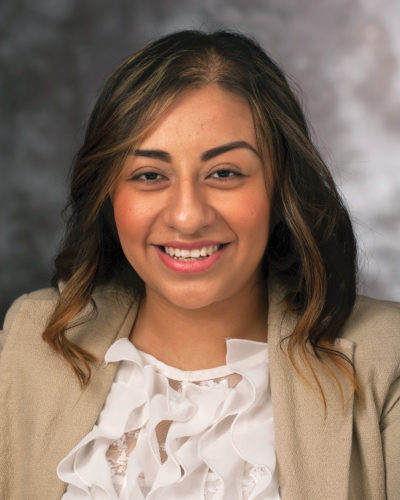
‘Be a Groundbreaker’
Another Wildcat, Yazmin Aguilar (BA Spanish Language and Literature, BS Social Work, ’17), had a very different path in her life. Born in Puebla, Mexico, Aguilar came to the U.S. at the age of 11, when her family settled in the Tri-Cities area. It was while at Pasco High School that she discovered she was undocumented.
“Central was always in my sights,” she said. “I was interested in studying bio-medicine and Central has a reputation for being a great school for science. But I couldn’t afford it, so I went to Columbia Basin College for two years, and there I was also involved in student government.
“I mention my involvement in student government because it was how I became engaged in school, and it’s how I became the first undocumented student trustee at Central,” she added.
Aguilar, said she found Central to be an inclusive and welcoming place. There, she continued to be involved in student government—serving as CWU’s student trustee for 2015-16 and on the Washington Student Achievement Council in 2018-19—and was eligible to receive state aid for undocumented students that helped pay for her education.
“I am thankful to Central Washington University for what I was able to do,” she said. “Central allowed me to apply to graduate school (she obtained a master’s degree in education from the University of Washington in 2019) and decide what I wanted to do in life.”
That decision led Aguilar to her current position as deputy director of Centro Latino in Tacoma. The community-based nonprofit serves as an important link for Latinos and Indigenous communities at a local and state level with educational programs, crisis intervention, family outreach services, and advocacy efforts—a way to help others who grew up like she did.
“This work is vital to me,” she said. “Not only am I devoted to this position with Centro, but, as I tell my staff members, every single client reminds me of my parents.”
As for what she thinks it means to be a Wildcat?
“It means being a groundbreaker,” she said. “I really like to take risks with learning something new, and Central allowed me to do that.”
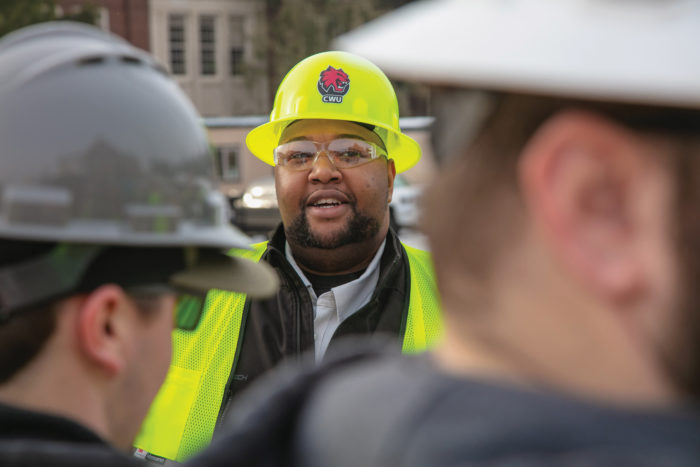
‘It’s About Community’
While not a CWU alum, Delano Palmer has found a home at the university since arriving at Central in 2018. Palmer, who is CWU’s Director of Capital Planning & Projects, earned a BS in Architecture from Texas Tech University and a MS in Construction Management from Purdue University.
“I spent eleven years as a project manager for a large construction company specializing in design-build projects: Haskell Company in Jacksonville, Florida,” he said. “I wanted to find a job where I could have a better work-life balance. My wife and I have always liked the Pacific Northwest, so we started looking there.
“Central was uniquely fitted for me because it had a construction department, where I might be able to teach, and a Facilities Management Department where I could use my skills,” he continued. “I’m grateful to be here, where I’ve been able to have the work-life balance I had been looking for.”
In addition to developing and implementing CWU’s campus master plan for new construction and renovations, Palmer, serves on the Board of Directors for the local Habitat for Humanity chapter.
“Public service is pretty important to me because my mom and dad were involved in that in our church while I was growing up,” he explained. “I became involved with Habitat for Humanity while I was a student at Texas Tech. I just started to volunteer to go out to the job sites and to help build houses.”
Palmer said his current involvement came about when he was approached to join the board by other members, who were familiar with his experience in construction management and volunteer work as well as his connection to CWU.
“We’re pretty excited about the work were doing in the county right now,” he said. “There is a large parcel at Water and Bender that we’re planning to build affordable housing on. Anyone interested in volunteering for Habitat for Humanity, we are always looking for help.”
As for what he believes it means to be a Wildcat, Palmer said: “Being a Wildcat is about community, it’s about the wonderful residential campus that provides such a beautiful collegiate experience, and about the comradery of the people you work with.
“It’s also how we teach classes, how we were able to pivot with COVID to continue to instruct our students,” he continued. “I really think the sharing of knowledge is crucial for what makes a Wildcat. It’s our ability to work together, making sure we have an open perspective on anything and everything.”


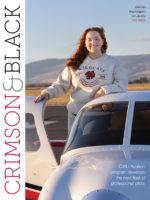

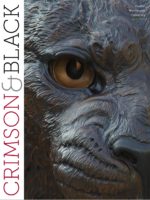
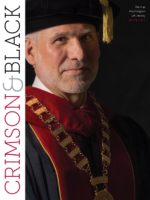
comments powered by Disqus